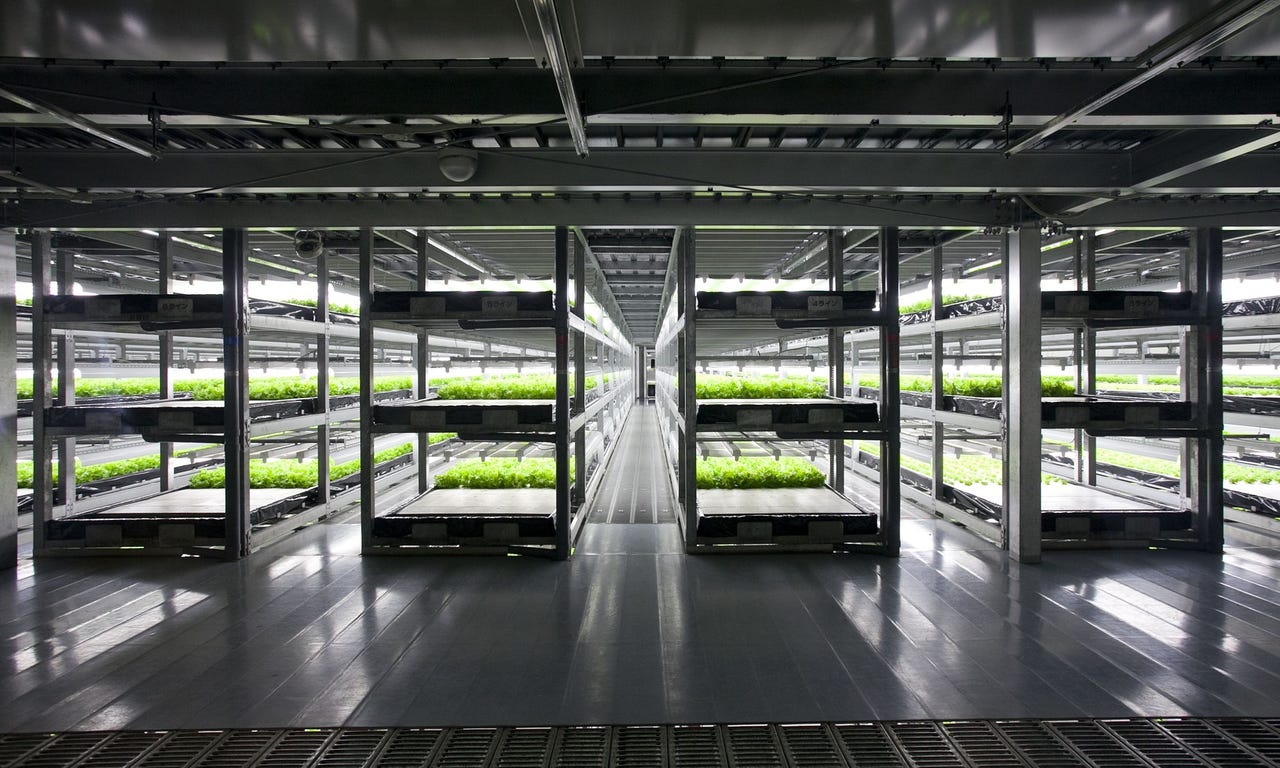Japan announces first farm run by robots


Lettuce growing in racks in one of Spread's indoor facilities.
A Japanese company is opening the first farm run almost entirely by robots.
Spread, a sustainable vegetable producer, plans to allocate almost all of the labor involved in growing thousands of heads of lettuce at its new facility in Kyoto to robots. The only task that will still be performed by humans is planting the seeds.
The move comes amid rising concerns in Japan that an aging population will soon result in a potentially crippling labor shortage. The government and tech industries are pushing the development of robotics to take over from humans.
It's an interesting inversion of the more typical conversation that surrounds robots and jobs--the perception that robotic automation is stealing jobs from humans.
Robotics
Spread's robot farm will be watched closely outside Japan, as well. There's growing consensus that our current food production paradigm is unsustainable. The U.N. estimates that by 2050 we'll need to sustainably produce 70 percent more food by calories than we do today to keep up with global population growth.
It's a tricky problem because there will be less land for farming as more people arrive on the planet. Farmers are also aging globally as younger generations migrate to cities. That's largely because a productivity boom over the last century has kept food prices low, which makes farming unattractive economically.
But global agricultural productivity is suddenly slowing for the first time in decades. No one is quite sure why, but it's likely a systemic problem related to the rise of monocultures and the overuse of fertilizers, which add harmful salts to soils.
All of that suggests the need for more efficiency in the way food is farmed in order to maximize yield. Robots are likely one part of the solution. Spread estimates that its new farm will allow it it to more than double its lettuce production from 21,000 head of lettuce per day to 50,000 per day. The company plans to raise that number to as much as a half-million daily within five years using robots and other automated growing systems.
The majority of Spread's robots will be articulated arms that work around a conveyer belt system, which will run throughout the 4,400 square meter farm. The installation will look more like a logistics fulfillment center than the family spread, with floor-to-ceiling shelves growing pesticide-free lettuce.
The robotic arms will transfer and replant seedlings and perform all harvesting. The smart farm will automatically optimize temperature, humidity, and CO2 levels, as well as recycle 98% of water and control lighting for optimal growth.
This is very likely the future of farming. Other Japanese technology firms like Panasonic, Toshiba, and Sharp are also experimenting with robotic farming solutions, including automated pickers for easily-bruised fruits and vegetables.
Spread's farm is set to open mid-2017.